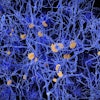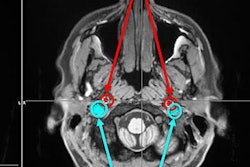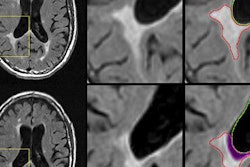Dear AuntMinnie Member,
A new study published today in Radiology has some interesting findings with respect to cerebral blood flow in children and young adults with chronic kidney disease.
Using arterial spin labeling MRI, researchers from the University of Pennsylvania found higher blood flow in certain regions of the brain that could correlate with loss of cognition in the patients -- a possible biomarker for cognitive dysfunction. The study contradicts previous research that linked reduced blood flow to subpar cognition. Learn more by clicking here.
While you're in our MRI Community, check out a new story on work by researchers from Denmark who developed a faster MRI protocol for determining which patients suspected of having prostate cancer should go on to targeted biopsy. They believe it could reduce biopsy referrals by up to 30%. Read more by clicking here, or visit our MRI Community at mri.auntminnie.com.
CT and brain calcifications
In other news, researchers from the Netherlands analyzed the brain CT scans of people with memory complaints and found a correlation between brain calcifications and risk factors such as smoking and diabetes. They believe the findings could have implications for the way that radiologists report the presence of vascular calcifications in the brain. Learn more by clicking here.
Another interesting story in our CT Community is this article on whether the correct metrics have been used to demonstrate a 20% mortality reduction with CT lung cancer screening.
These stories and more are available in our CT Community at ct.auntminnie.com.
AI and cyberattacks
Finally, visit our Artificial Intelligence Community for a new article that raises questions about whether artificial intelligence (AI) algorithms used to analyze medical imaging applications could be at risk of cyberattacks. The researchers noted that bad actors could want to hack AI programs for multiple nefarious reasons, such as influencing a clinical trial. They even performed a research test with three algorithms to prove their point. Read more by clicking here, or visit the community at ai.auntminnie.com.


.fFmgij6Hin.png?auto=compress%2Cformat&fit=crop&h=100&q=70&w=100)





.fFmgij6Hin.png?auto=compress%2Cformat&fit=crop&h=167&q=70&w=250)











